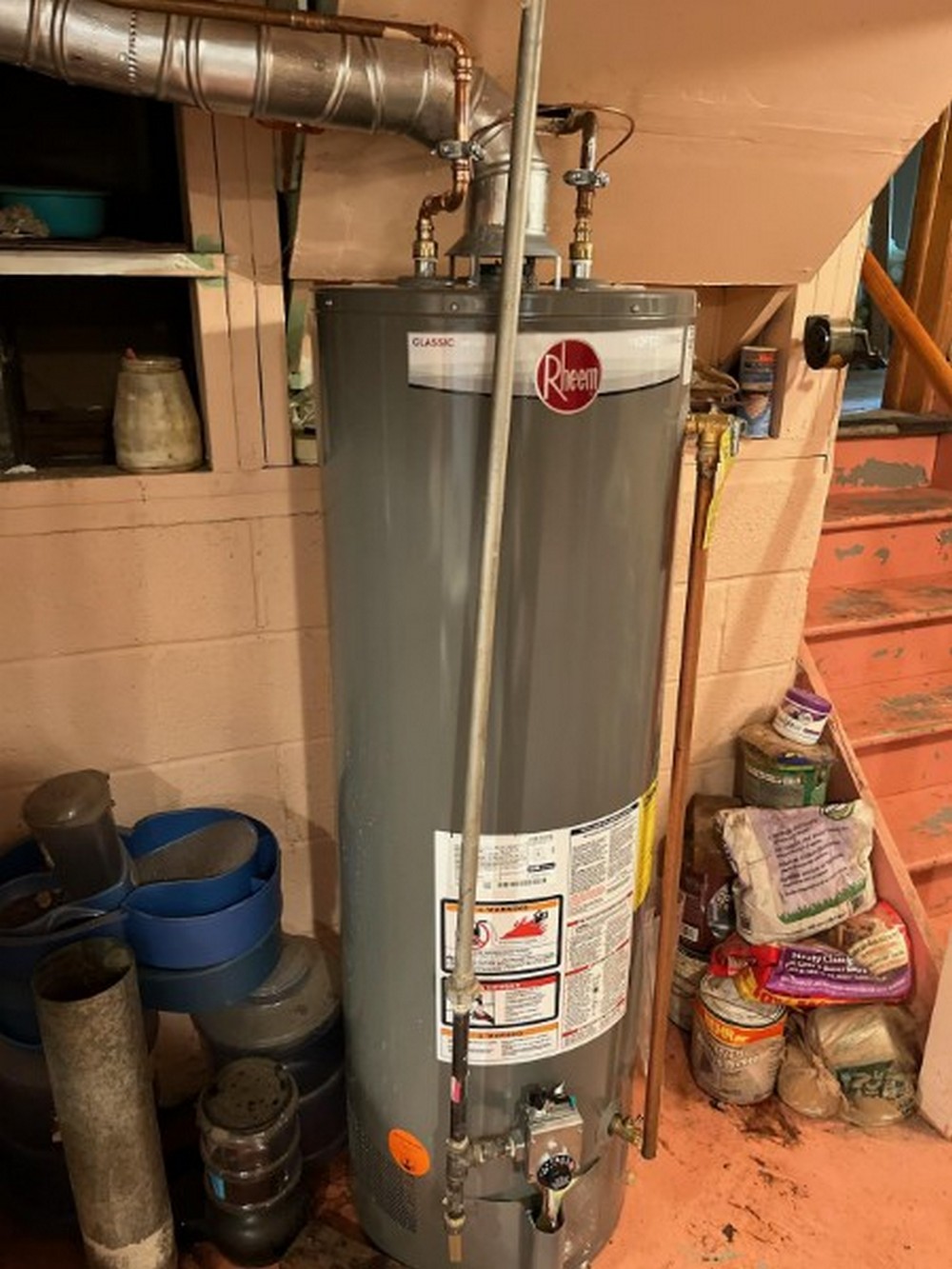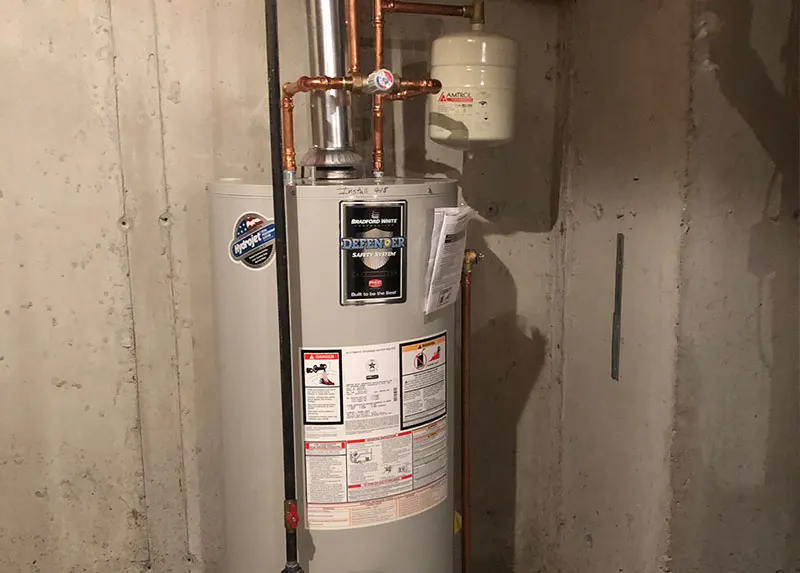Certified Gas Leak Repair for Your Protection and Security
Certified Gas Leak Repair for Your Protection and Security
Blog Article
Full Overview to Water HeaterInstallment and Substitute
Comprehending the intricacies of hot water heater setup and substitute is essential for home owners seeking to guarantee effectiveness and reliability in their warm water supply. From selecting the proper type and size to implementing a seamless installation process, a number of variables should be taken into consideration to prevent common pitfalls. This guide will provide you with the required steps and understandings to browse the complexities of this home enhancement job, while also emphasizing essential maintenance techniques that can lengthen the life of your system. As you explore these elements, you may find on your own reassessing your current arrangement and determining areas for improvement.
Kinds Of Hot Water Heater
When thinking about water heating unit installment and substitute, it is vital to recognize the various types of hot water heater offered in the market. One of the most common kinds consist of storage tank water heating systems, tankless water heating units, heatpump water heating systems, and solar water heating units.
Tank water heating systems are conventional systems that save a specific quantity of hot water, making them conveniently available when required. In comparison, tankless water heating units provide warm water on need, getting rid of the need for storage space.
Heatpump water heaters use electricity to transfer warm from the air or ground to warmth water, offering significant energy financial savings yet requiring more area and certain installation conditions. Solar water heating systems harness solar power to warmth water, supplying an environmentally friendly choice with prospective long-lasting expense financial savings, although they usually call for a back-up system for over cast days.
Comprehending these options ensures educated choices relating to setup and replacement, accommodating certain requirements and preferences.
Choosing the Right Size
Picking the proper dimension for a hot water heater is essential to ensure optimal efficiency and effectiveness. A system that is too small will certainly battle to satisfy home demands, leading to irregular warm water availability and raised power consumption. Conversely, an oversized hot water heater can cause unneeded power waste and greater energy expenses.
To figure out the right dimension, consider the house's top warm water use. This can be calculated based upon the number of occupants and their normal hot water requirements. For instance, a family of 4 may need a hot water heater with a capability of 50 to 80 gallons, relying on the usage patterns, such as simultaneous showers and washing.
Furthermore, assess the healing price, which determines just how rapidly a heating system can renew warm water after it has been used. For tankless designs, concentrate on the circulation rate, measured in gallons per minute (GPM), to guarantee it fulfills the house's simultaneous demand.

Installment Process Review

Following, the old system must be separated and eliminated, making sure to adhere to local codes and laws relating to disposal. Once the old device is out, the new hot water heater can be positioned in place. This action involves linking the supply of water lines, making certain that all fittings are secure and leak-free.
After establishing water links, it's essential to attach the power supply, whether electric or gas, adhering to the maker's instructions diligently. When all links are made, the system must be filled with water, and the power can be transformed back on. Ultimately, it's crucial to inspect for leakages and guarantee the hot water heater is operating correctly before completing the installment process.
Typical Setup Mistakes

Another frequent blunder is ignoring to comply with local codes and guidelines. Falling short to comply with these requirements can not only cause safety and security dangers however might likewise lead to pricey penalties or the requirement for pricey reinstallation. Additionally, incorrect venting is an essential problem. Poor ventilation can create hazardous gas buildup, posturing significant health threats.
Wrong pipes connections are additionally a prevalent error. Falling short to secure connections or utilizing the incorrect kind of installations can bring about leakages and water damages. Overlooking the relevance of a proper drain frying pan can result in significant water damage if leaks do occur. Inadequate insulation of pipelines can lead to warm loss, decreasing performance. By avoiding these typical setup errors, house owners can guarantee their hot water heater operates safely and efficiently, maximizing efficiency and long life.
Maintenance Tips for Longevity
Correct maintenance of a water heating system is necessary for its durability and optimum efficiency. Normal examinations and servicing can prevent costly repair services and expand the device's lifespan. Begin by checking the temperature setting; it needs to commonly be set in between 120 ° F and 140 ° F for optimal power efficiency and safety.
Every 6 months, purge the container to remove debris accumulation, which can harm heating effectiveness and trigger deterioration. To do this, turn off the heater, attach a hose to the drainpipe valve, and allow the water run up until it is clear.
Anode poles ought to be inspected each year and changed when they are corroded. These poles aid avoid container rust by attracting corrosive components in the water.
Additionally, inspect the pressure safety valve frequently to guarantee it is functioning correctly. This shutoff is vital for protecting against extreme pressure accumulation within the tank.
Finally, think about arranging a professional upkeep check every couple of years for detailed evaluations and maintenance. By adhering to these maintenance tips, property owners can considerably boost the efficiency, security, and life expectancy of their water heating units, guaranteeing trusted warm water for many years to come.
Final Thought
Finally, proper installment and upkeep of water heaters are important for making certain efficiency and longevity (drain cleaning). Selecting the appropriate kind and size, adhering to installment guidelines, discover here and preventing usual mistakes dramatically add to ideal efficiency. Regular upkeep checks and professional servicing assistance suffer functionality and protect against expensive fixings. By recognizing these vital facets, homeowners can achieve a trustworthy warm water supply while minimizing potential problems associated with hot water heater operation.
Recognizing the intricacies of water heating system installment and substitute is vital for house owners looking for to guarantee performance and dependability in their hot water supply.Storage tank water heating systems are traditional systems that save a certain quantity of hot water, making them readily available when required. In contrast, tankless water heating units offer hot water on need, getting rid of the need for storage space. Choosing check this site out a water heater that is either too small or also big can lead to inadequacies, resulting in insufficient warm water supply or too much energy intake.
By comprehending these crucial aspects, house owners can accomplish a dependable hot water supply while minimizing prospective concerns related to water heating unit operation. gas this hyperlink leak repair.
Report this page